Filter by
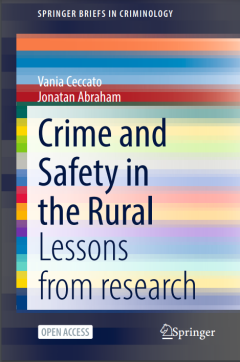
Crime and safety in the rural : lessons from research
Criminology has until recently neglected the nature and levels of crime outside the urban realm. This is not a surprise as crime tends to concentrate in urban areas and the police directs resources where the problems are. Yet, there are many reasons why scholars, decision-makers and society as a whole should care about crime and safety in rural areas. This book highlights 20 reasons why crime a…
- Edition
- 1
- ISBN/ISSN
- 9783030982904
- Collation
- xix; 123p;
- Series Title
- -
- Call Number
- 364.91734 CRI V
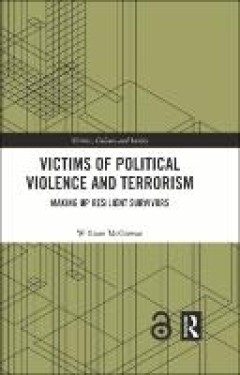
Victims of political violence and terrorism : making up resilient survivors
This book examines the survivors of political violence and terrorism, considering both how they have responded and how they have been responded to following critical incidents. As this work demonstrates, survivors of comparatively rare and spectacular violence hold a mirror up to society’s normative assumptions around trauma, recovery and resilience. Drawing on two years of observational fiel…
- Edition
- -
- ISBN/ISSN
- 9781003154020
- Collation
- xi, 274 p. : ill.
- Series Title
- -
- Call Number
- 362.889317 MCG v
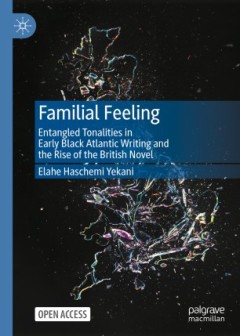
Familial feeling : entangled tonalities in early black Atlantic writing and t…
This open access book discusses British literature as part of a network of global entangled modernities and shared aesthetic concerns, departing from the retrospective model of a postcolonial “writing back” to the centre. Accordingly, the narrative strategies in the texts of early Black Atlantic authors, like Equiano, Sancho, Wedderburn, and Seacole, and British canonical novelists, such as…
- Edition
- -
- ISBN/ISSN
- 9783030586416
- Collation
- -
- Series Title
- -
- Call Number
- 823.709352 YEK f
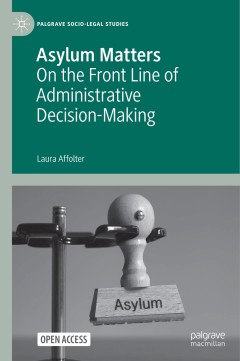
Asylum matters : on the front line of administrative decision-making
This open access book examines everyday practices in an asylum administration. Asylum decisions are often criticised as being ‘subjective’ or ‘arbitrary’. Asylum Matters turns this claim on its head. Through the ethnographic study of asylum decision-making in the Swiss Secretariat for Migration, the book shows how regularities in administrative practice and ‘socialised subjectivity’…
- Edition
- -
- ISBN/ISSN
- 9783030615123
- Collation
- xvii, 203p. : ill.
- Series Title
- -
- Call Number
- 342.494083 AFF a
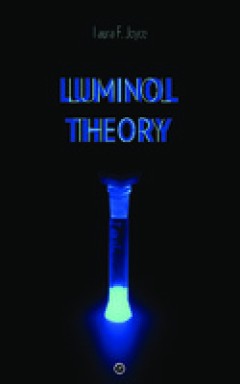
Luminol theory
Representations of forensic procedures saturate popular culture in both fiction and true crime. One of the most striking forensic tools used in these narratives is the chemical luminol, so named because it glows an eerie greenish-blue when it comes into contact with the tiniest drops of human blood. Luminol is a deeply ambivalent object: it is both a tool of the police, historically abused and …
- Edition
- -
- ISBN/ISSN
- 9781947447134
- Collation
- 138 p.; 22 cm.
- Series Title
- -
- Call Number
- 340 JOY l
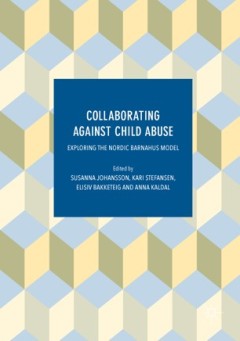
Collaborating against child abuse : exploring the Nordic Barnahus model
This edited collection explores the background and implementation of the Nordic Barnahus (or 'Children's House') model – recognised as one of the most important reforms related to children who are the victims of crime in the Nordic region. This book discusses both its potential to affect change and the challenges facing it. The model was introduced as a response to a growing recognition of th…
- Edition
- -
- ISBN/ISSN
- 9783319583884
- Collation
- xxxii, 384p. : ill.
- Series Title
- -
- Call Number
- 362.767 COL c
 Computer Science, Information & General Works
Computer Science, Information & General Works  Philosophy & Psychology
Philosophy & Psychology  Religion
Religion  Social Sciences
Social Sciences  Language
Language  Pure Science
Pure Science  Applied Sciences
Applied Sciences  Art & Recreation
Art & Recreation  Literature
Literature  History & Geography
History & Geography